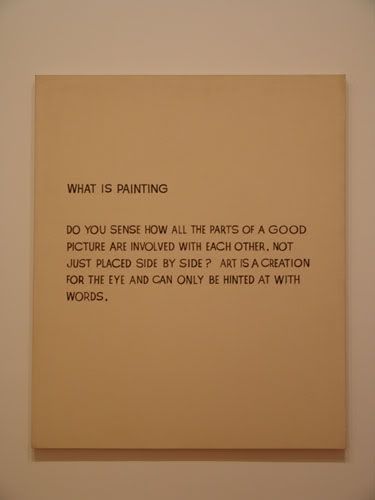
John Baldessari, What is Painting, 1958, oil on canvas
In a finding sure to evoke concern and curiosity among curators, newly published research suggests presenting contextual information alongside a work of modern art may be counterproductive in terms of eliciting enjoyment or appreciation.
Writing in the journal Empirical Studies of the Arts, psychologist Kenneth Bordens of Indiana University-Purdue University, Fort Wayne, describes a study in which undergraduates evaluated artworks representing various styles. The 172 participating students had little or no knowledge about art. (Tom Jacobs, Miller-McCune, 2-16-2010)This is an interesting finding, and one that may help curators decide how to present artworks. As a viewer, I often feel condescended to when I read the explanatory material. Or else the explanations just seem a bit simple-minded. But at the same time, if there is no explanation, I often wish there were. Something to help me understand what the hell I'm looking at. I don't know that a reasonable balance can be struck.
But what really blows me away is that there is a journal called Empirical Studies of the Arts! That's like having a journal devoted to the aesthetics of chemistry. Apparently U.H. subscribes, so I think a trip to the U.H. library is in order.

No comments:
Post a Comment